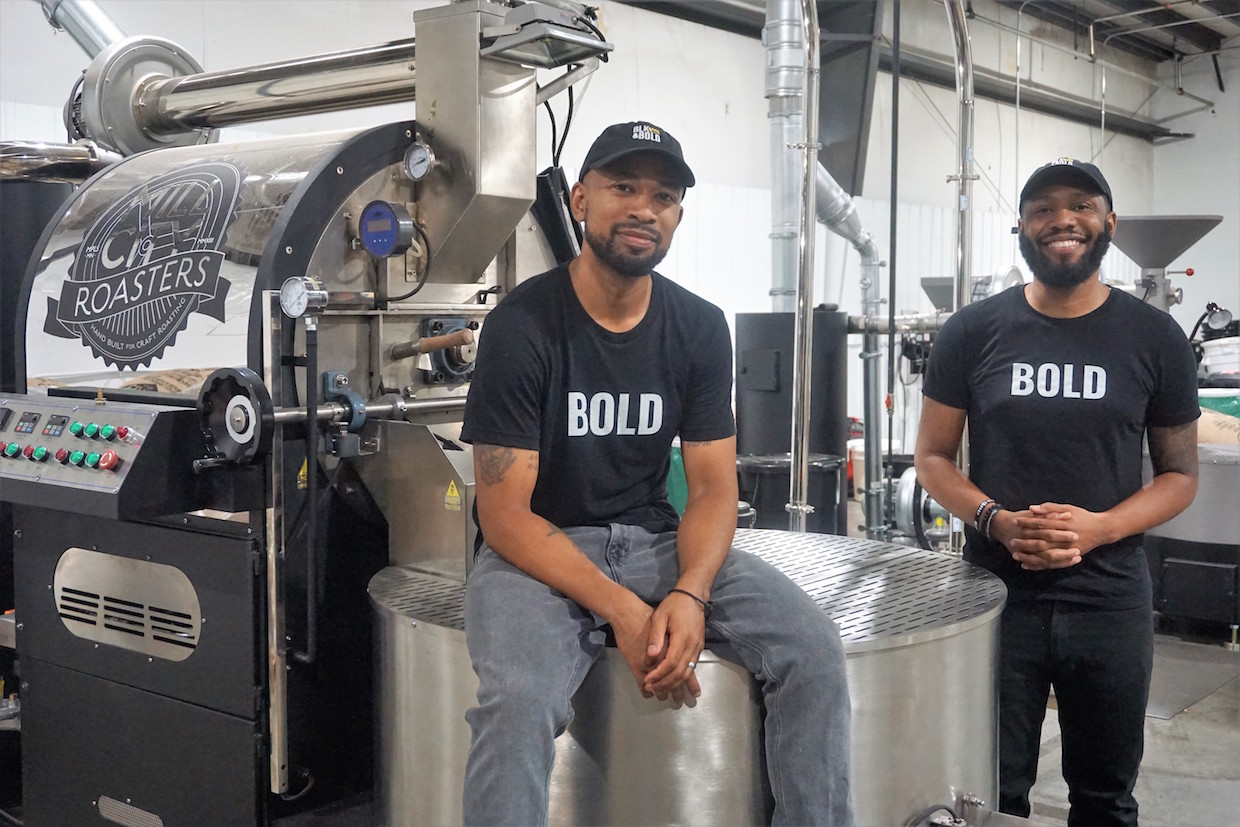
BLK & Bold Founders Pernell Cezar (left) and Rod Johnson at the company’s new Iowa roastery. Courtesy photo by Marquise Richards, Cap Social.
Over the past two weeks, Pernell Cezar and Rod Johnson discovered they’d won the social entrepreneur of the year award from the Black-owned business directory and app Official Black Wall Street (OBWS), and that their coffee roasting business BLK & Bold had finally been officially certified as B Corp.
Such recognition for the company’s social output are part of a whirlwind second full year in business for Des Moines, Iowa-based BLK & Bold, which has been forced to contend with the COVID-19 pandemic and the ebb and flow of demand.
External forces aside, Johnson and Cezar said it’s BLK & Bold’s social mission that always provides a clear path forward. The company donates a remarkable 5% of its total profits to organizations and community efforts supporting at-risk youth in places where BLK & Bold coffee is purchased.
The company has also recently gained national distribution through Amazon and Target while also entering 31 Whole Foods locations, meaning that range of places has vastly expanded.
Dozens of organizations throughout Iowa, the Midwest and farther afield have now received funds through BLK & Bold’s social initiative, which the founders described to DCN as a kind of scaling up of local community building.
“Our goal was to cast as wide of a net as possible again so we can have greater impact in that social impact mission,” Johnson recently told Daily Coffee News. “We are ultimately driven by how we can exist as a resource… It wasn’t that the world needed another coffee company, it was that the world needs more businesses that care about their community.”
Johnson and Cezar are childhood friends who grew up on the same block in Gary, Indiana, before moving onto careers in economic development and branding and merchandising, respectively. Johnson is in the process of relocating from Sacramento to the company’s two-month-old headquarters and roastery in Des Moines, where Cezar has been overseeing the coffee program.
Cezar first started roasting with a sample roaster in his garage before BLK & Bold invested in a Probat P12 and opened in a production space shared with a brewery. The company now roasts in a 10,000-square-foot Des Moines roastery all its own with brand new Mill City roasters, offering a broad range of coffees sourced through numerous importing companies, including Ethiopia specialist Keffa Coffee and Honduras specialist Cima Cafe.
Whittled down to a staff of two once COVID-19 swept the nation, the company has since swelled to 12 employees.
“We’re super-fortunate in the current landscape to be able to employ locally,” said Cezar, noting recent reports that more than 40% of Black-owned businesses were not expected to survive the pandemic.
As for BLK & Bold’s roasting and sourcing approach, Cezar said it too reflects the company’s desire for broader appeal, and thus more communities impacted locally.
“We learned really quickly that every consumer is on a different spectrum,” Cezar said. “As we continued to define what our product would be, the ethos has been meeting consumers where they are, and then allowing them to have that a-ha moment.”
As Black people continue to be woefully underrepresented in the U.S. coffee industry, to the great detriment of the industry itself, Cezar credited fellow coffee roasting pros Cameron Heath (Counter Culture, Revelator) and Carlos Sims (Happy Home and currently featured in the Matchbook Coffee Project) for helping to lead the way.
“It’s just a fact that that’s the case, and the question is what do we do about it,” Cezar said regarding Black representation in the roasting industry. “Coffee is not an economic pillar for black communities as it is in white communities, and it is often the sign of a changing community… My recommendation always come down to your hiring practices. The biggest thing we can do is employment.”
Johnson said that lack of representation on the consumer side is something BLK & Bold is seeking to address through its distribution channels and the overall development of the brand.
“If we can grow, garner more awareness, [and] bring in more strategic partnerships, it allows us to double down on why we do this in the first place: social impact,” Johnson said. “It’s really hand in hand.”
Nick Brown
Nick Brown is the editor of Daily Coffee News by Roast Magazine.



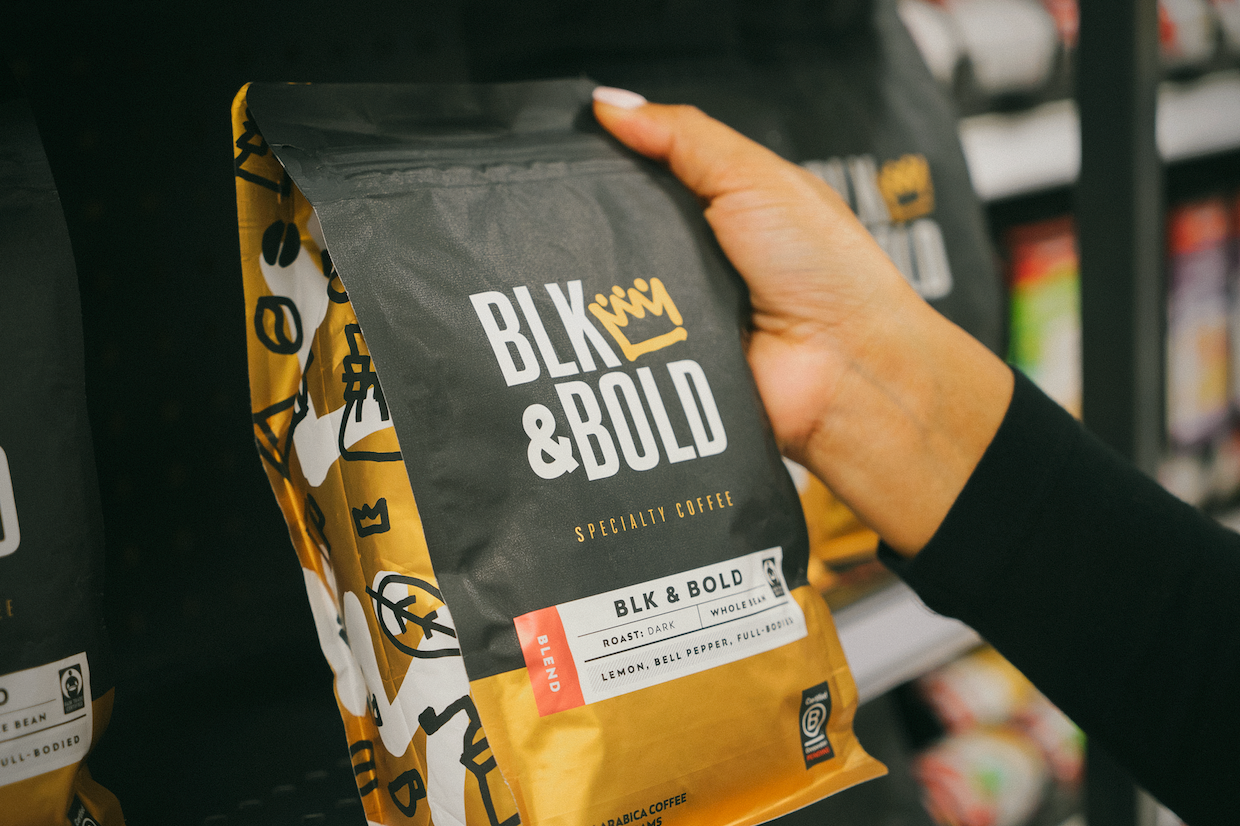
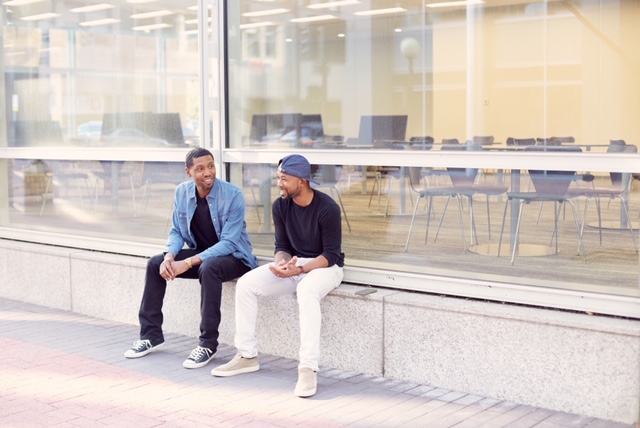
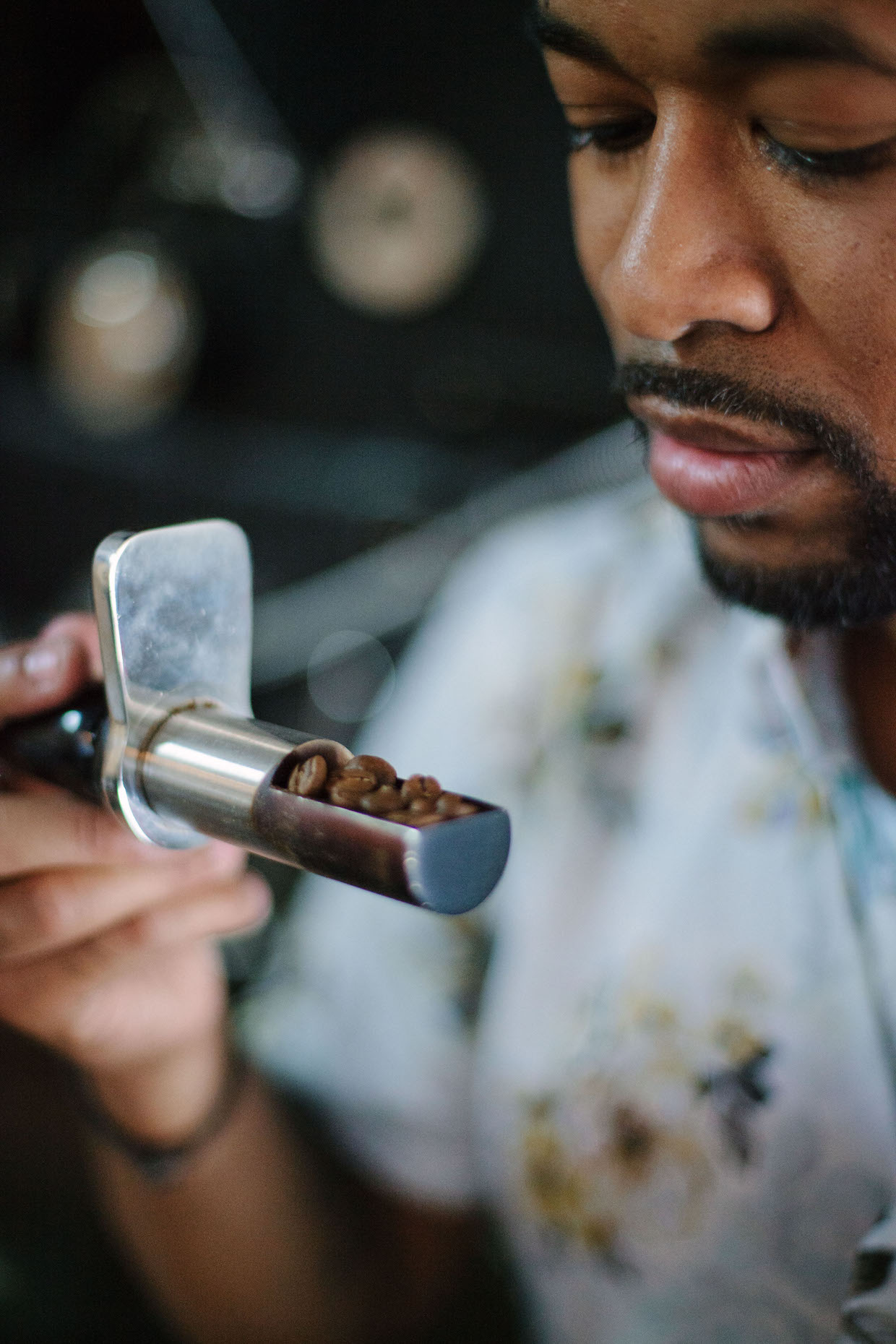
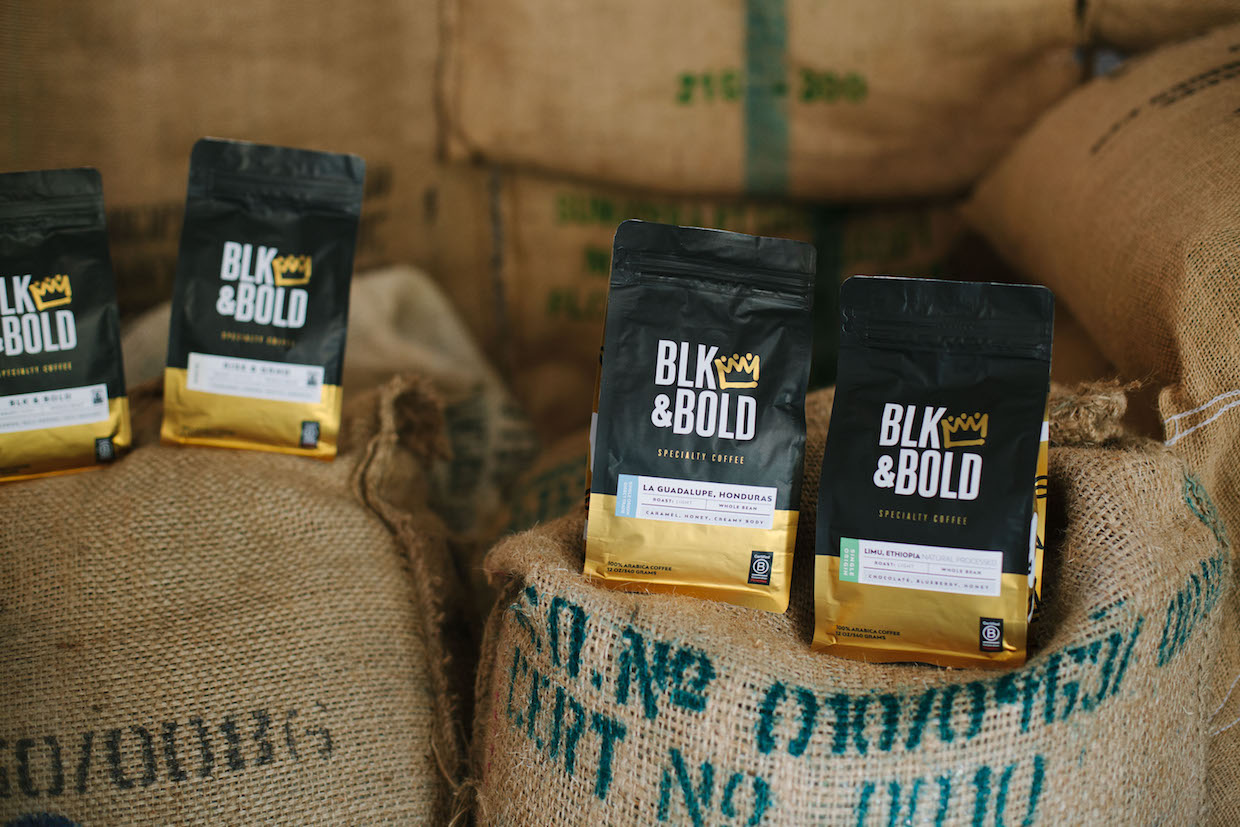



Comment